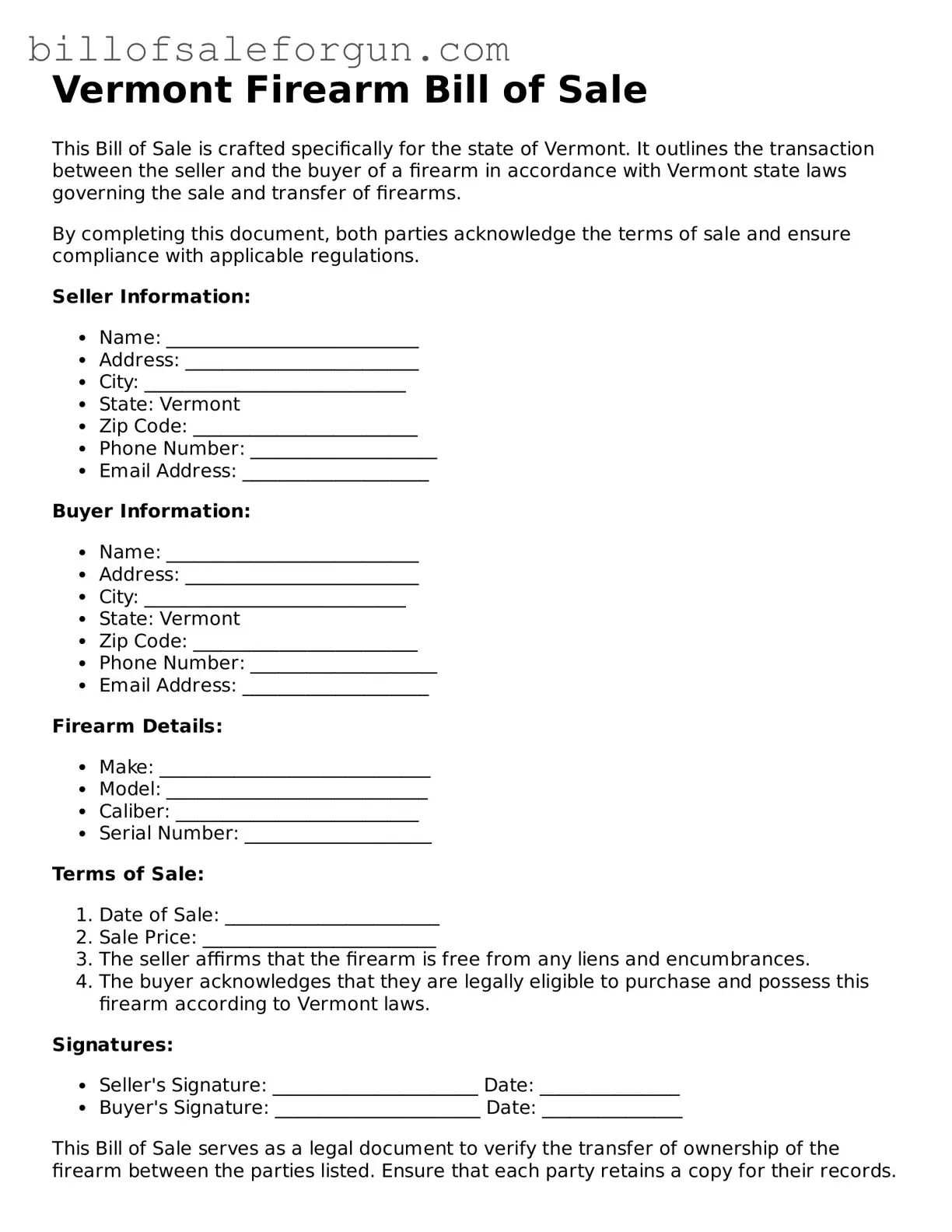Similar forms
The Vermont Firearm Bill of Sale form shares similarities with the Vehicle Bill of Sale. Both documents serve as proof of transfer of ownership from one party to another. They typically include essential information such as the names and addresses of the buyer and seller, a description of the item being sold, and the sale price. This ensures that both parties have a clear understanding of the transaction and can refer back to the document if needed.
Another document that resembles the Vermont Firearm Bill of Sale is the Boat Bill of Sale. Like the firearm bill, this document records the transfer of ownership of a vessel. It includes pertinent details such as the hull identification number, make, model, and year of the boat, along with the buyer and seller's information. This creates a clear record for both parties and can be useful for registration purposes.
The Personal Property Bill of Sale is also similar in function. This document is used for the sale of various personal items, such as electronics, furniture, or collectibles. It outlines the transaction details, including the description of the item, the sale price, and the parties involved. This helps establish legal ownership and can be important for resolving disputes in the future.
Additionally, the Lease Agreement has similarities in that it formalizes a transaction between parties, although it pertains to the rental of property rather than a sale. This document outlines the terms of the lease, including the duration, rent amount, and responsibilities of both the landlord and tenant. It serves to protect the rights of both parties and provides a clear framework for the rental relationship.
The Rental Agreement is another document that serves a similar purpose. It details the terms under which one party rents property from another. This agreement includes information about the rental amount, security deposits, and the duration of the rental period. Both the Rental Agreement and the Firearm Bill of Sale aim to clarify the responsibilities and rights of the involved parties.
The Employment Contract also bears similarities, as it formalizes the relationship between an employer and an employee. This document outlines job responsibilities, salary, and benefits. While it pertains to employment rather than a sale, both documents establish clear expectations and legal obligations for the parties involved.
The Partnership Agreement is akin to the Firearm Bill of Sale in that it formalizes a relationship between two or more parties. This document outlines the terms of the partnership, including profit-sharing and responsibilities. It serves to protect the interests of all parties involved, much like a bill of sale protects the interests of buyers and sellers.
It's crucial to understand the benefits of having a designated representative for your health decisions. The comprehensive Medical Power of Attorney form ensures that your healthcare choices are honored when you cannot advocate for yourself. For more information, visit the Medical Power of Attorney guidelines.
The Real Estate Purchase Agreement is another document that is similar in purpose. It outlines the terms of a real estate transaction, including the purchase price, property description, and closing date. Like the Firearm Bill of Sale, it provides a legal record of the transaction and establishes the rights and obligations of both the buyer and seller.
Finally, the Equipment Bill of Sale is similar in that it documents the transfer of ownership of equipment, such as machinery or tools. This document includes descriptions of the equipment, the sale price, and the details of both parties. It serves to protect both the buyer and seller by clearly outlining the terms of the sale.
